High-quality pupil-to-pupil talk enhances, deepens and consolidates learning. This can be impromptu moments such as Explain to your partner what I just said or What do you think about what Hanny just said?
Talk tasks can also be planned in advance. Here are three ways to use pupil talk to enhance learning in History:
1. New facts
Let’s say you want your pupils to learn some facts about the Vikings. Instead of simply telling your pupils the facts, give them facts written out on slips of paper and ask pupils to do something with them. For example,
Pick out the three most interesting facts.
Order the facts from least interesting to most interesting.
Sort the facts into groups, and decide what the labels for each group could be.
To carry out these tasks, students will need to talk to each other – making suggestions, giving reasons, justifying, asking questions and so on.

Looking out into the fjord
2. Revisiting target vocabulary
Put target vocabulary into some thinking questions and have pupils discuss them in pairs. For example,
Would you rather use the oars on a longship, or stand at the helm looking out into the fjord?
Would you prefer to be a warrior, a seafarer or a farmer?
Would you rather be an archaeologist or a curator?
3. Revisiting facts
Create the opportunity for pupils to apply facts. This could be through P4C, or by providing talking point statements and asking pupils to discuss in trios whether they agree or disagree with them. For example,
Most Vikings were bad people.
Raiding was the Viking way to survive.
It would have been fun to be a Viking.
Viking burials were a good way to honour the dead.
Support and challenge students to include everyone in their group – everyone should be invited to speak and give reasons.
A great way to get students used to talking to different people
A structure which develops speaking and listening, and can be used across the curriculum
How one teacher raises accountability using a quick and simple technique
Collaboration is much more likely when pupils have to do a shared piece of work
A new in-depth professional learning programme for school leaders, oracy leads and classroom teachers
Give students opportunities to say and apply new vocabulary
Recommended reading for teachers and everyone else too!
Would you rather spend most of your time indoors or outdoors? And more
Learners recall fiction, processes, explanations and more by listening and building on what others have said
How one teacher got everyone thinking, talking, listening and learning
Give pupils the skills and resilience to work with a diverse range of people
Talk prompts and sentence stems to help learners express different types of thinking
Help students to use the language of Maths

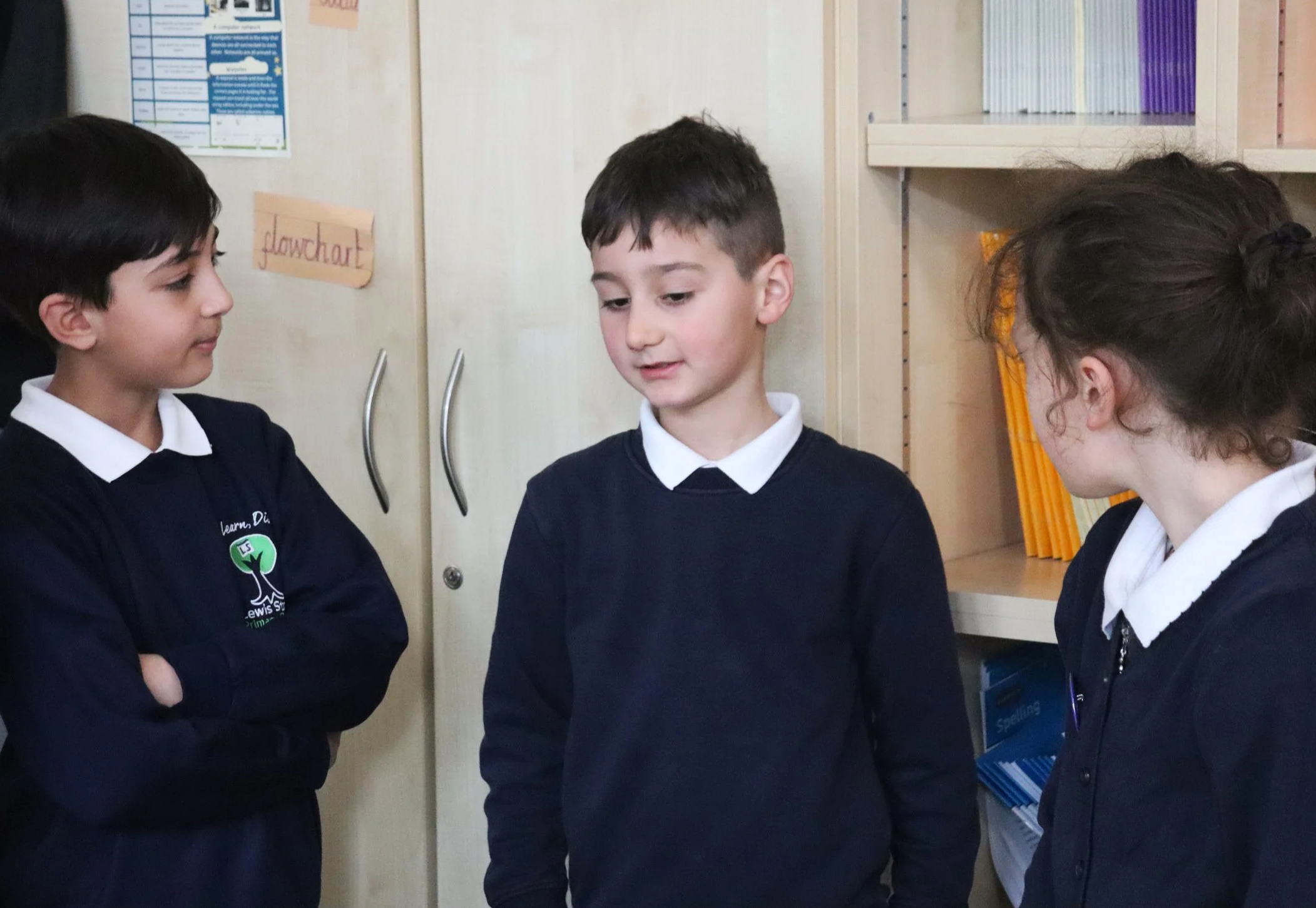

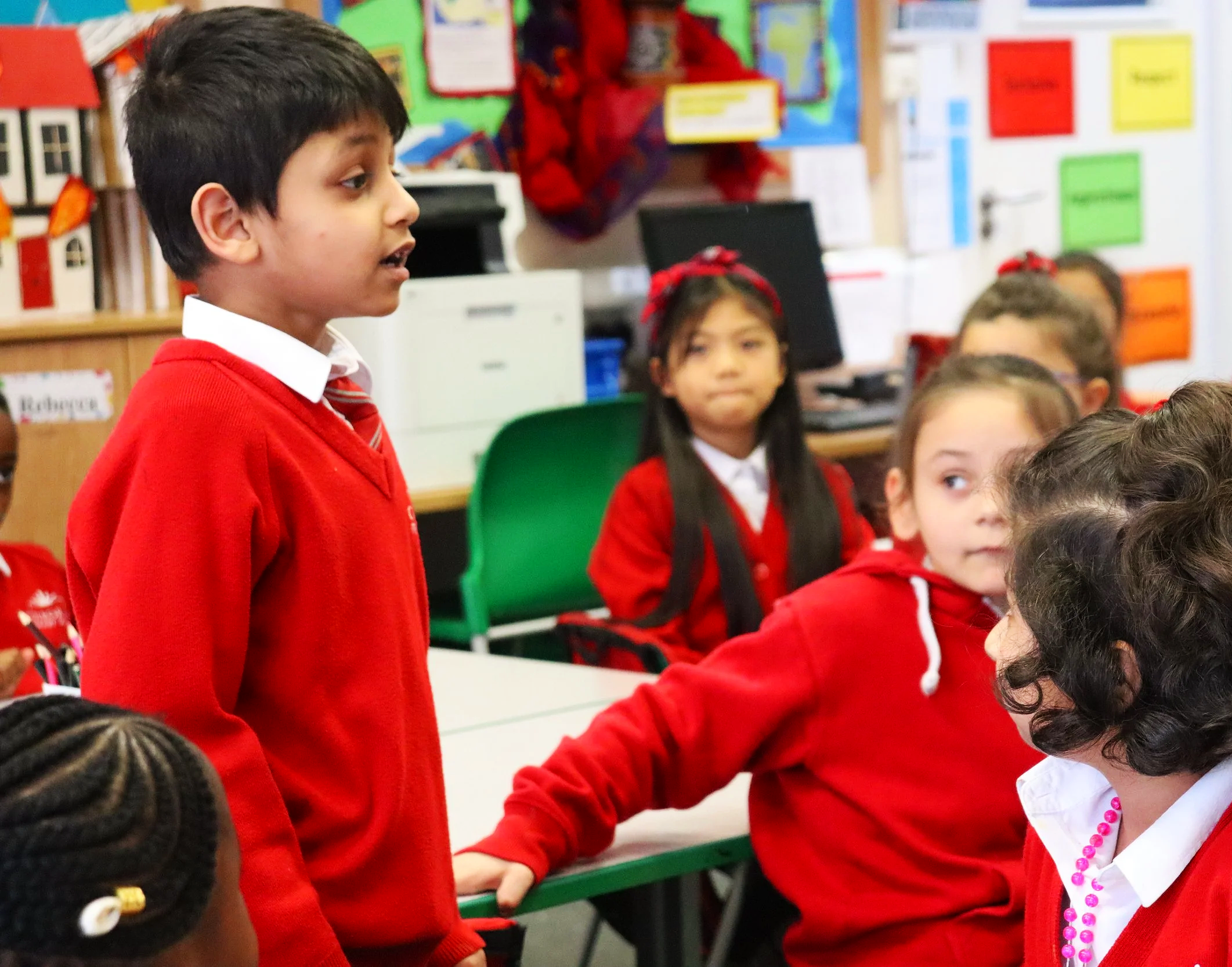
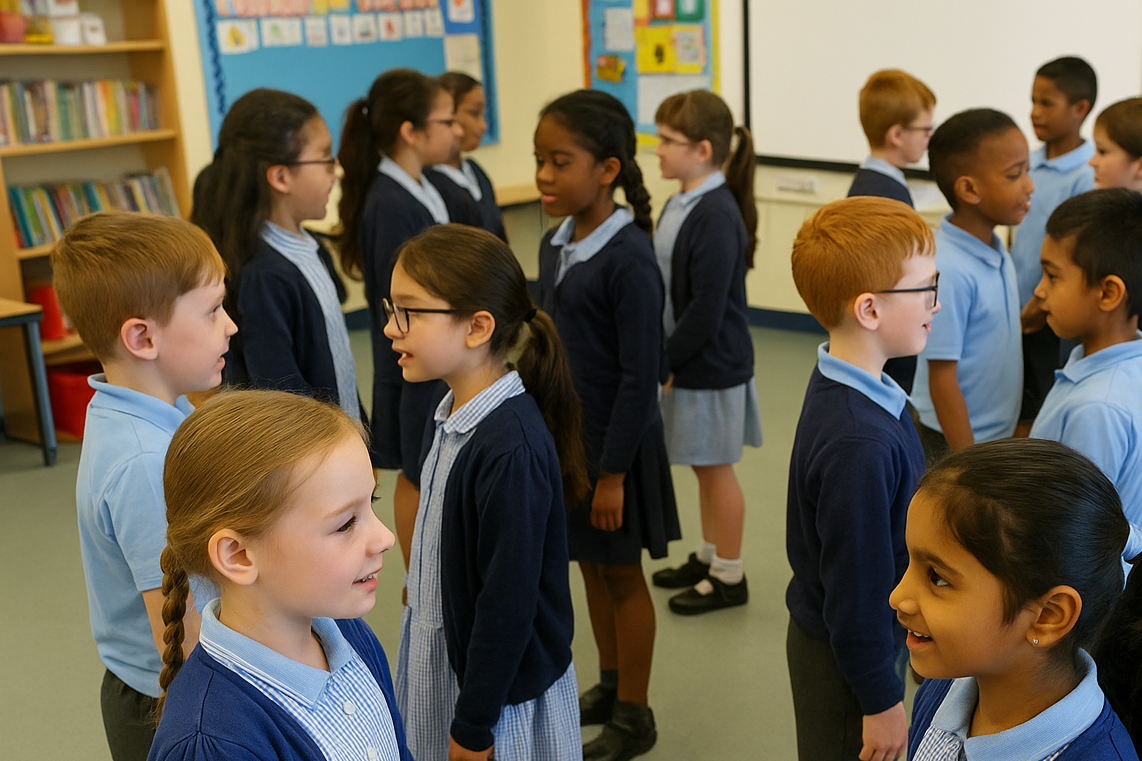





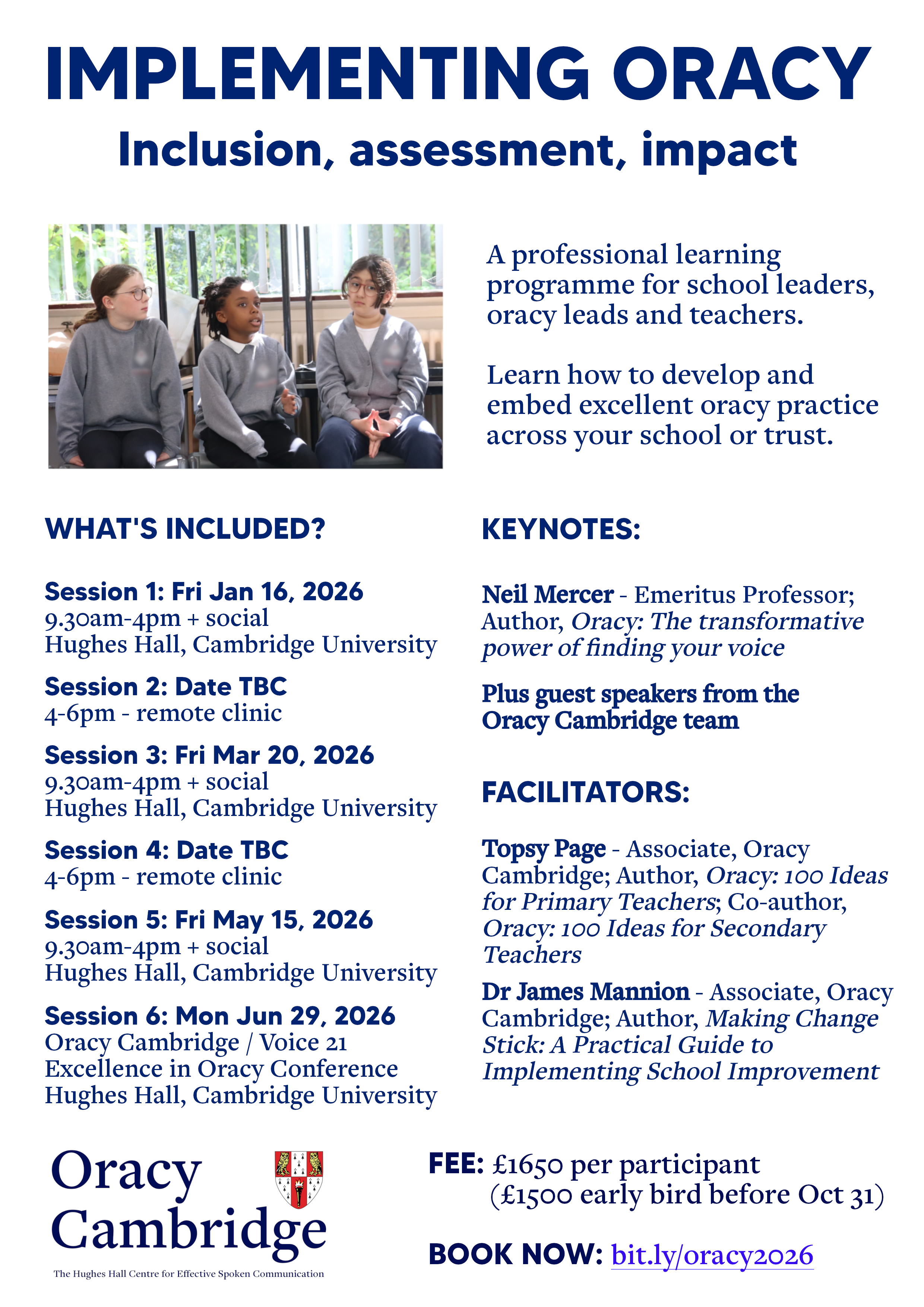
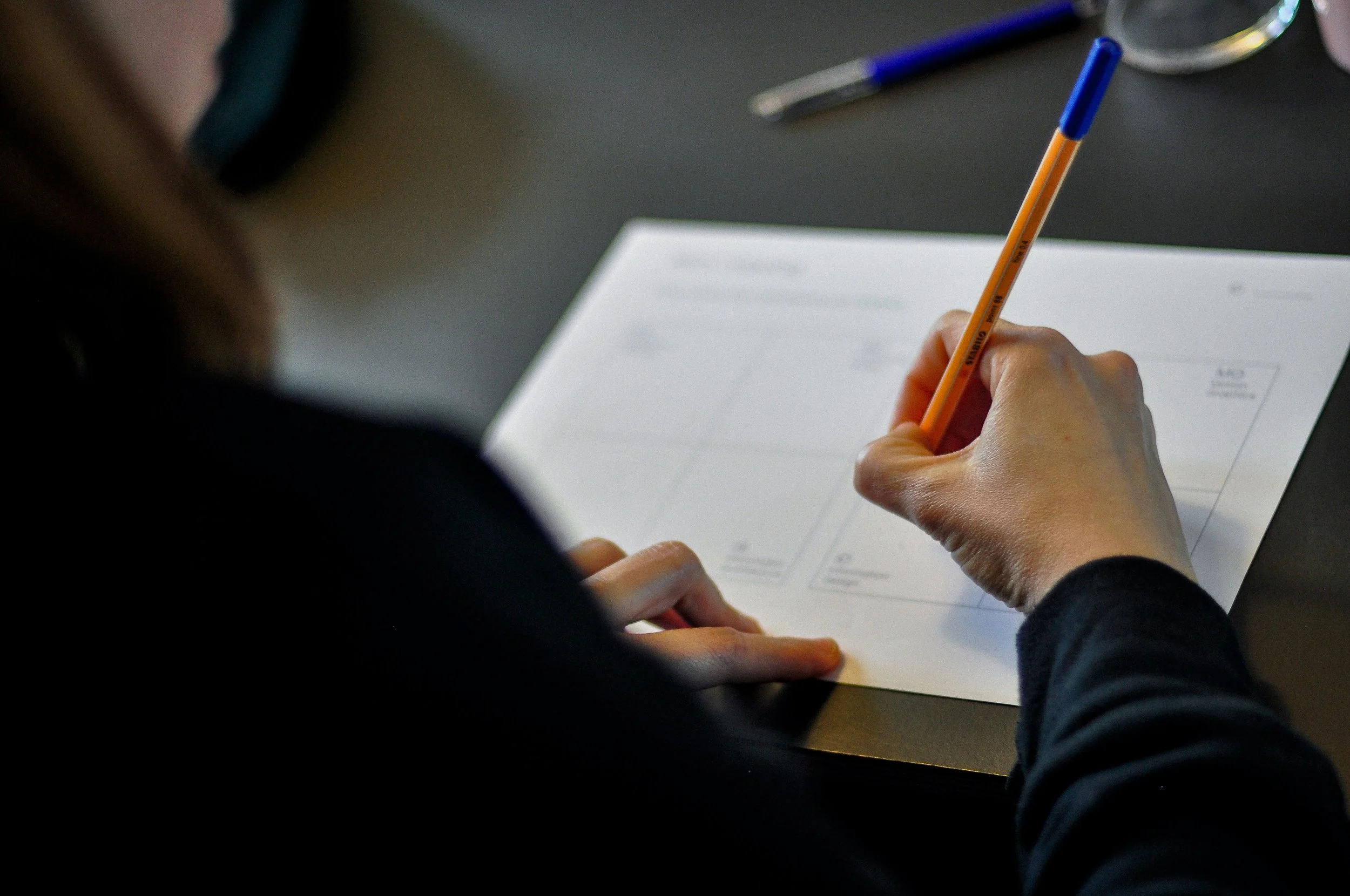
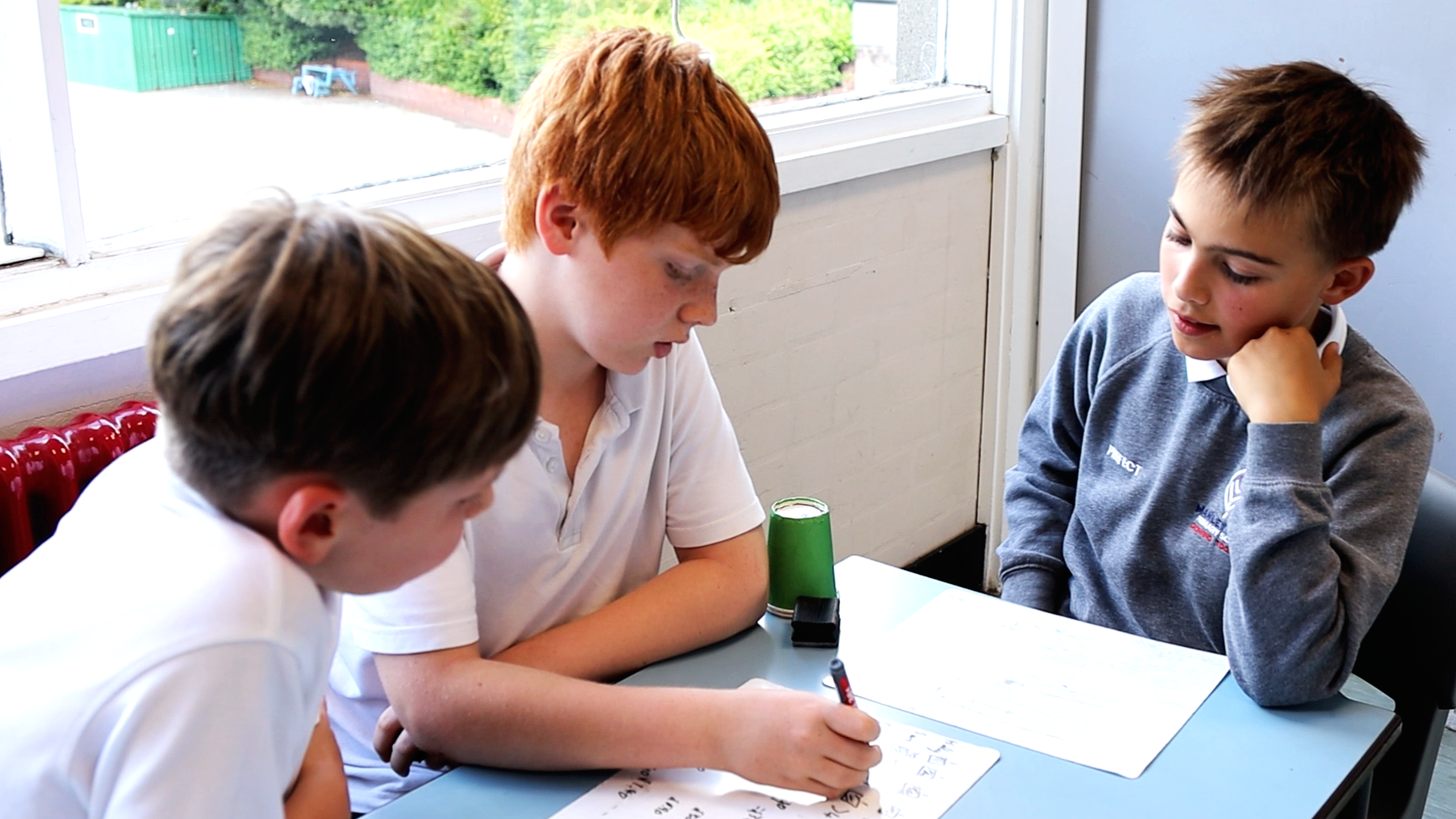
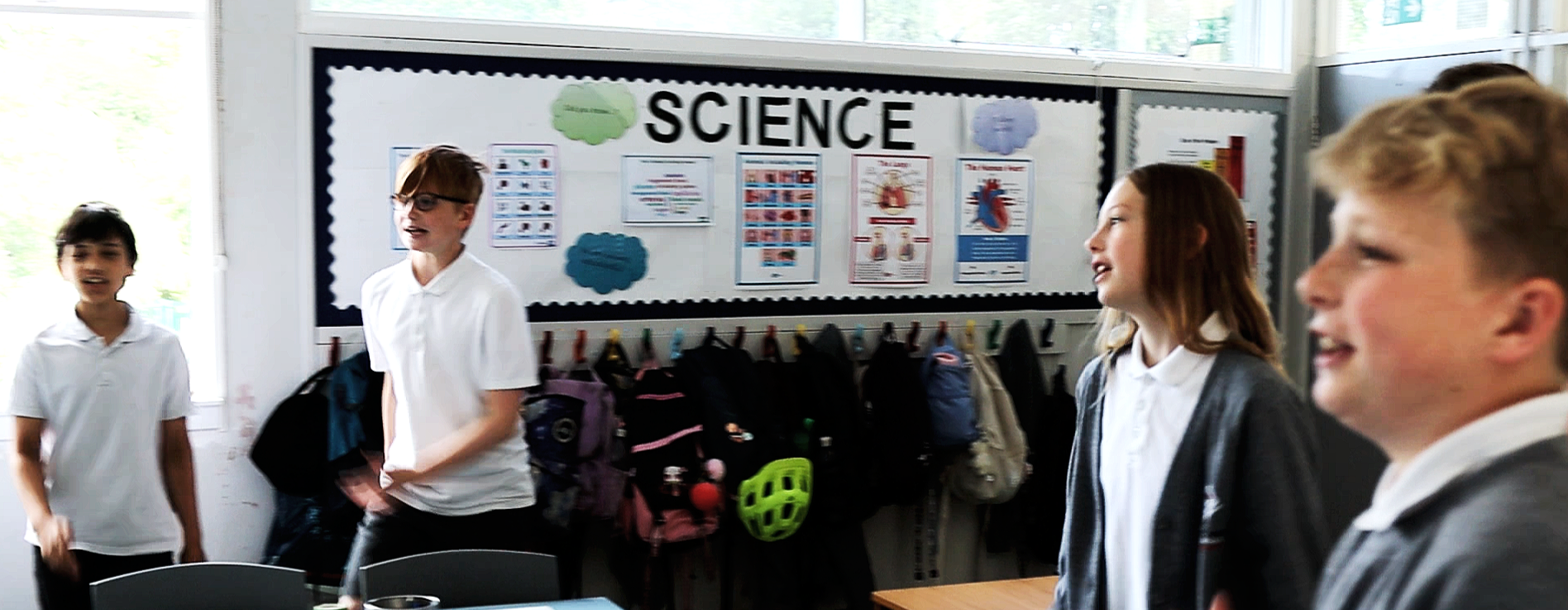


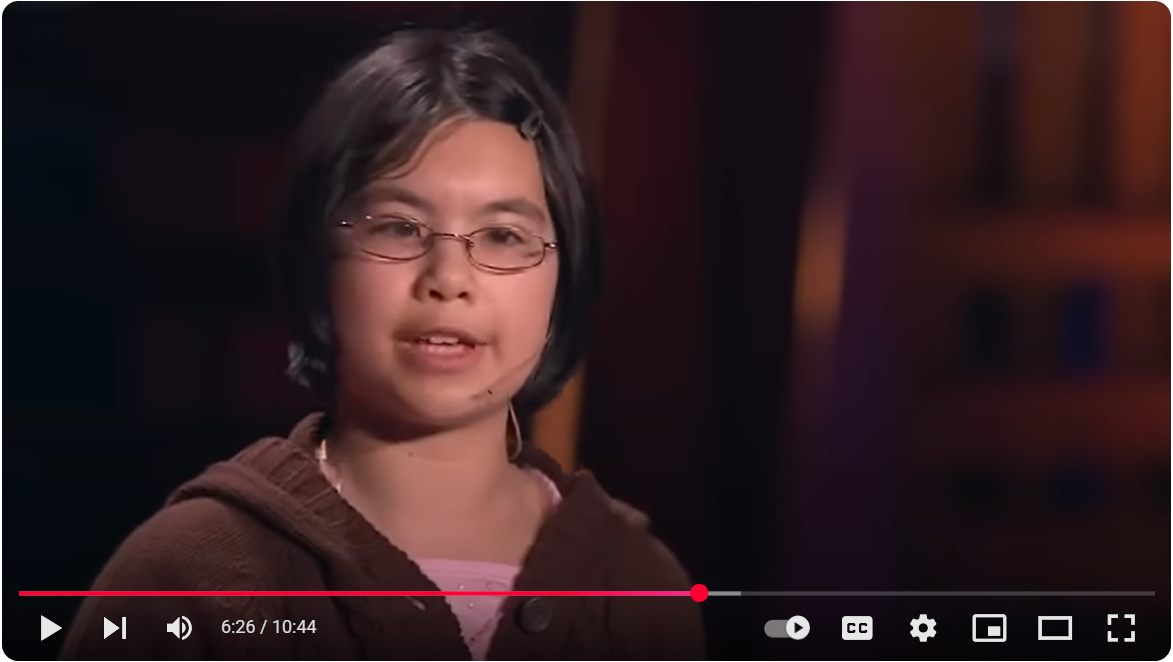






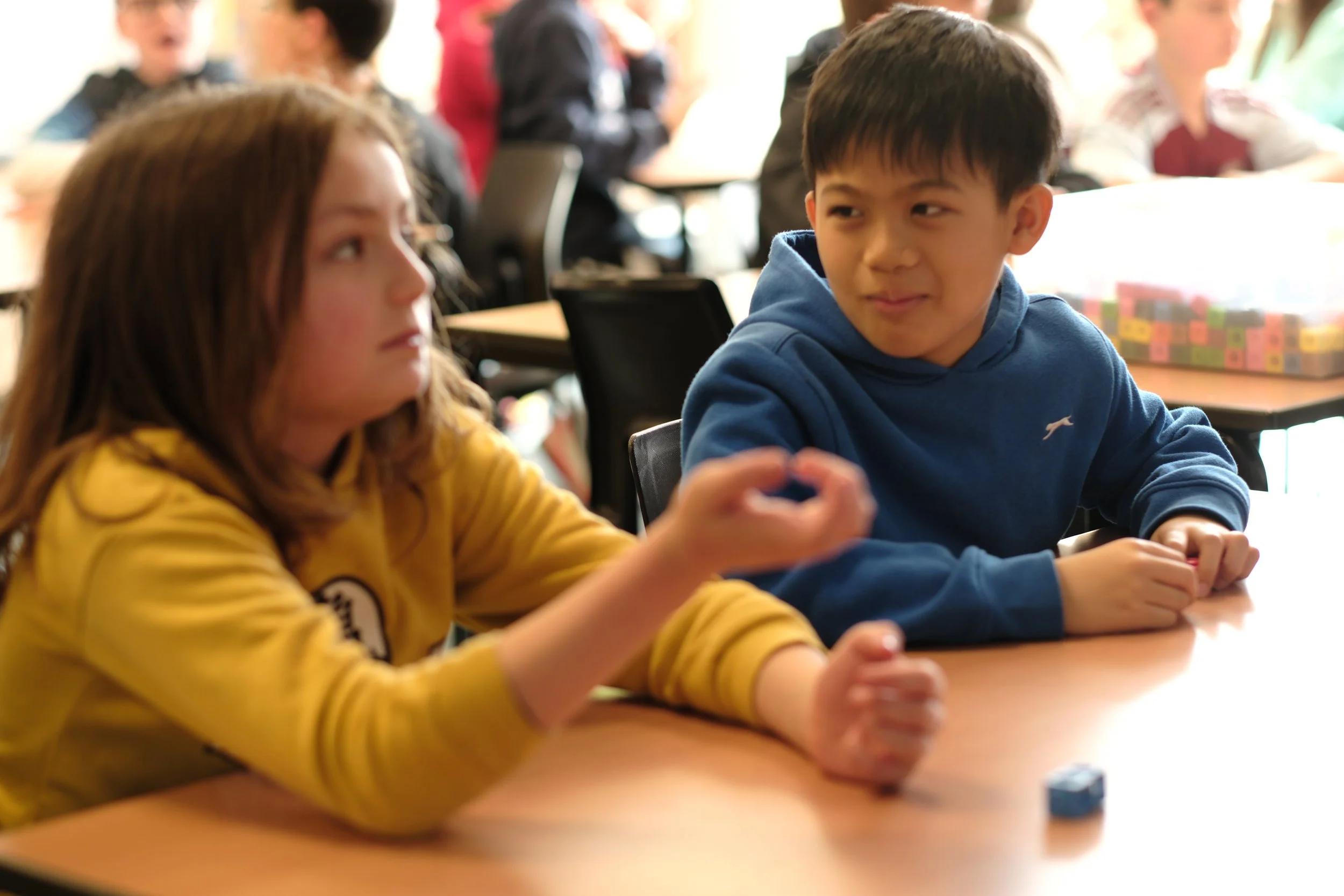


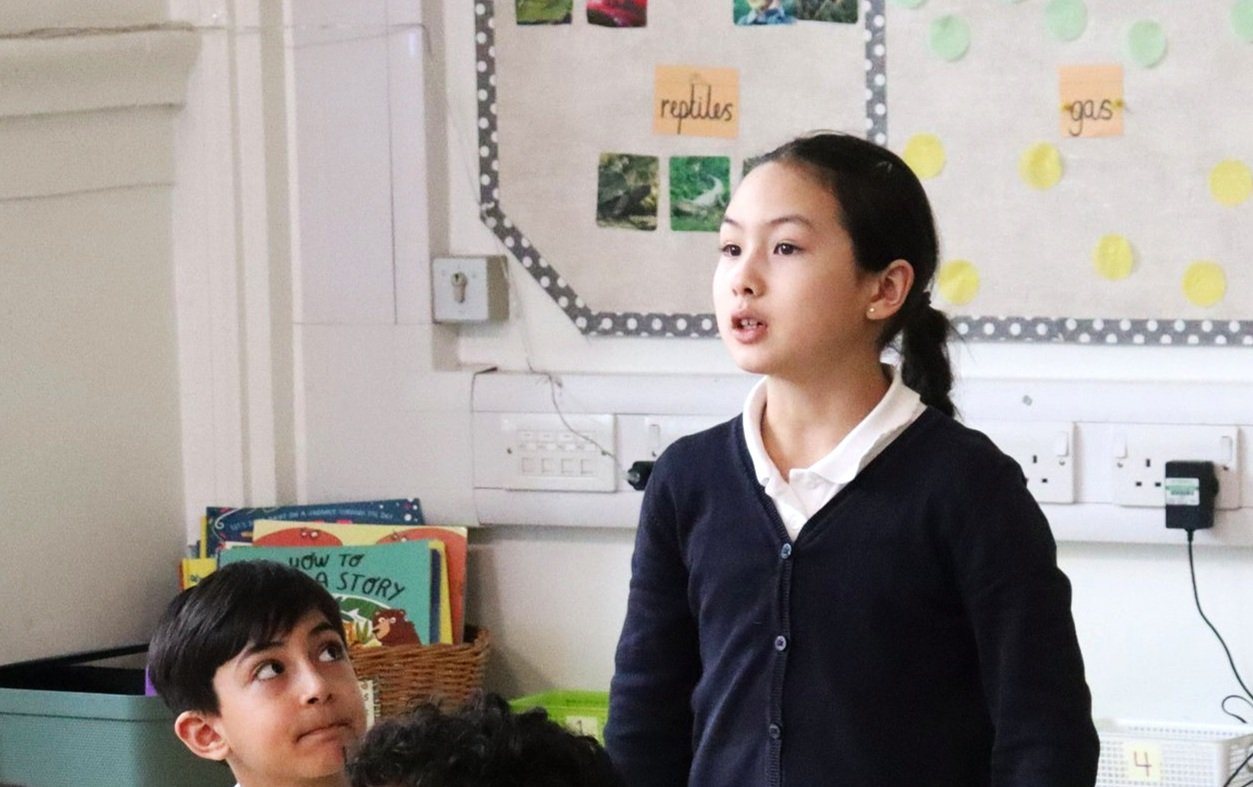



Can they remember what everyone else said?